Echoing Sustainable Tourism Practices: Sitta Yan’s Contribution
| Date: | 29 May 2024 |
| Author: | Erika Compatangelo |
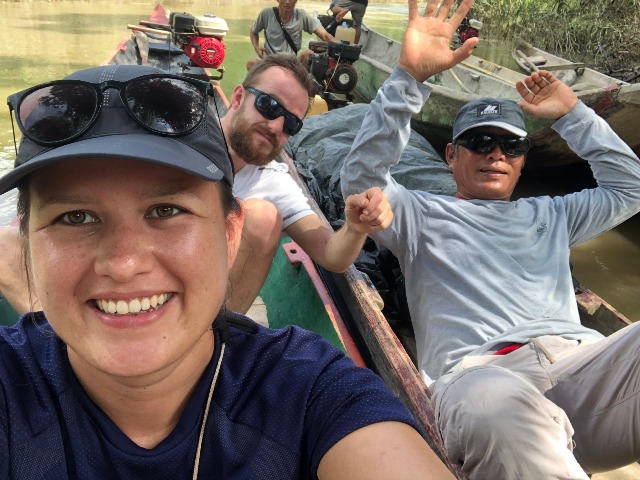
Sitta completed her Master’s studies in Sustainable Tourism & Society at Campus Fryslân in October 2023. In this blog post, she discusses how her personal background influenced her passion for tourism. With both Dutch and Mentawaian roots, Sitta found a way to celebrate her mixed heritage while advocating for a cause she believes in. Keep reading to learn how mindful, place-based practices can contribute to making tourism sustainable!
Hello Sitta! Could you tell me a bit about yourself?
Sure thing! I'm Sitta, I was born in the Netherlands but my roots are half Indonesian, specifically Mentawaian. After finishing high school, I spent five years living in Indonesia. When I came back to the Netherlands, I decided to pursue my interest in tourism. I studied International Tourism Management for my Bachelor's degree at TIO in Amsterdam, focusing on the business side of things. Later, I started my own tourism business together with my dad, who was born and raised in the Mentawai Islands, in Indonesia. My dad is great at telling stories and knows the local language because he grew up on one of the islands, where they speak Mentawaian, a language that's different from any other.
Before diving into your work experience with sustainable tourism, why did you choose to pursue this particular field of study?
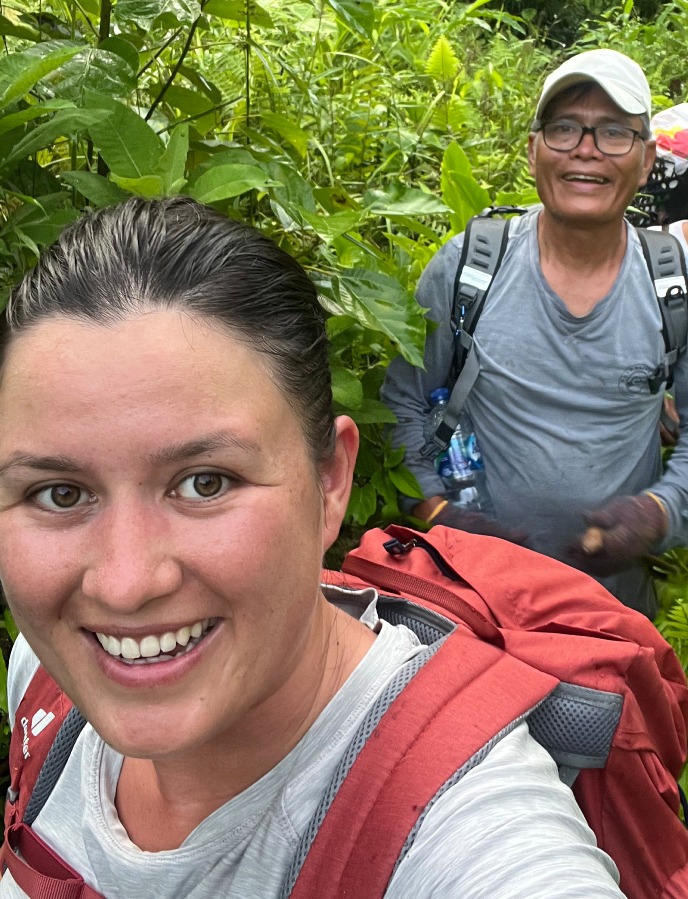
It all started with my pre-master's in Anthropology, a subject that runs in the family as both my parents are anthropologists. After working for some time, I realized I craved something more than just work; I wanted to delve into a field that offered both intellectual stimulation and practical application. While I appreciated anthropology's approach, I found it too abstract and slow-paced for my liking. I was looking for something more hands-on and relevant to everyday life.
That's when I stumbled upon the master's programme in Sustainable Tourism & Society. What drew me to it was its focus on the qualitative aspects of tourism, particularly from the perspective of local communities. This resonated with me because it aligns with the ethos of the company I created, where inclusivity and equality are paramount. Being the only foreigner among my Mentwaian colleagues, I've witnessed firsthand our efforts to involve everyone and ensure fair treatment, such as directly compensating women to address disparities.
❝What drew me to it was its focus on the qualitative aspects of tourism, particularly from the perspective of local communities.
This resonated with me because it aligns with the ethos of the company I created, where inclusivity and equality are paramount.❞
My interest lies in catering to niche tourism markets rather than mass tourism, which is why this programme appealed to me—it aligns with my professional goals and values.
The programme being located in Leeuwarden didn't pose a problem to me thanks to my free transportation pass (OV) and having family in the area. I appreciated the intimate atmosphere of the faculty, a welcomed change compared to my previous experience, where large class sizes made interaction quite a challenge. I prefer smaller settings where I can engage in discussions and communicate effectively, especially when the topic is of interest to me!
❝I appreciated the intimate atmosphere of the faculty, a welcomed change compared to my previous experience, where large class sizes made interaction quite a challenge.❞
Why this business?
In a way, I sort of rolled into it. It all started with surfing. As surfing was upcoming in Mentawai, my dad wanted to build an accommodation on the islands. Yet, with the anthropology background of my dad (and we both are not surfers), I suggested starting jungle tours with him as the guide.
Once, I was on a bounty island with my uncle, just fishing. We saw tourists hanging around, looking for a surfing spot. They looked disappointed because there were no waves. That's when we asked them if they would be interested in making... coconut oil! We taught them the end-to-end process, from selecting and picking the right coconut with a machete, to grinding its flesh and kneading and cooking out the oil. After quite some time working on it, they had collected a pretty good quantity! At the end of our time together they insisted on paying my uncle for the nice activity. This is a good example of how we like to connect locals and tourists. We let the tourists experience the local way of life while keeping the local Mentawaians doing what they do daily. This also creates a certain pride among the local community.
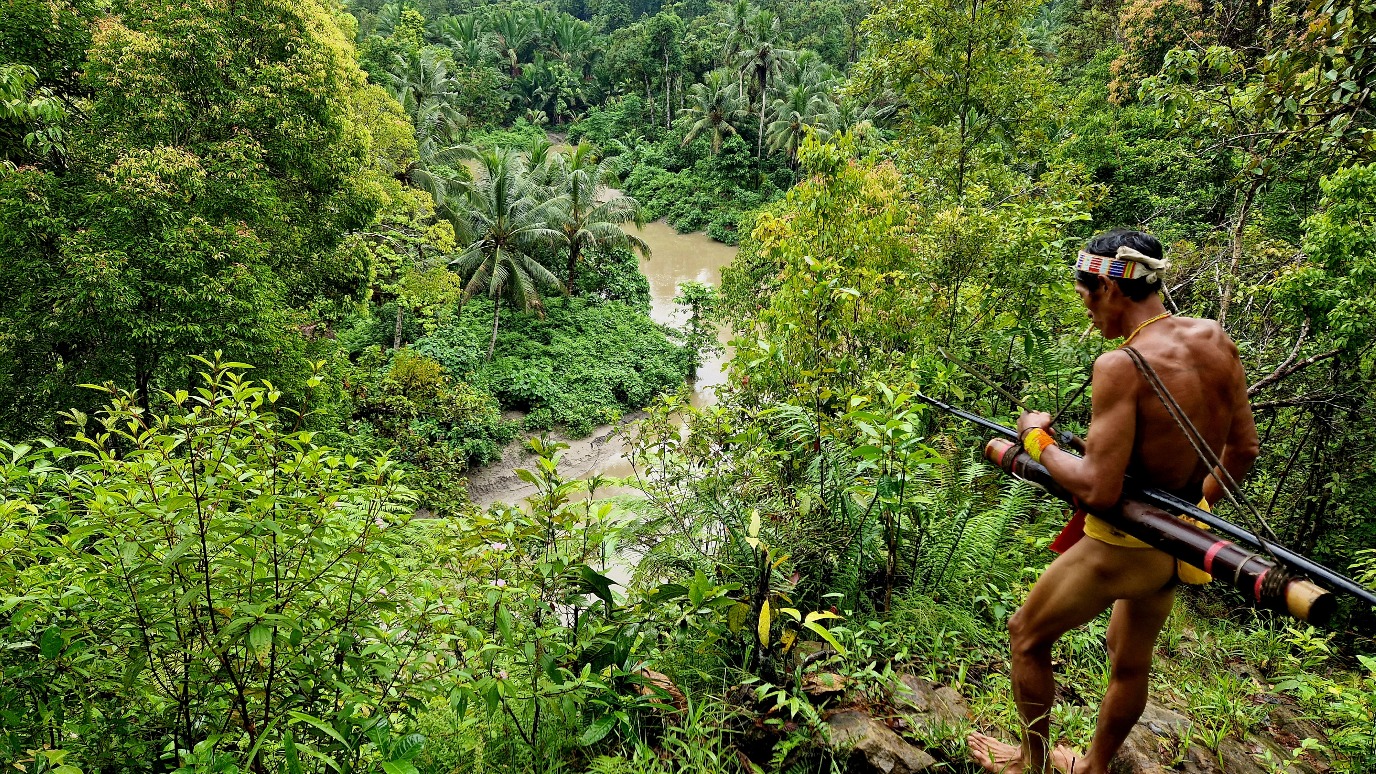
❝We let the tourists experience the local way of life while keeping the local Mentawaians doing what they do daily.❞
That’s quite a story! What attracted you specifically to the topic of sustainable tourism?
It really all had to do with the connection I have with the Mentawai islands and the Mentawaians. On the island, medicine men and inhabitants do things a certain way. I know of tourists who want to come to the islands and bring alcohol with them and party. That is not a respectful way of entering someone’s living space. So I thought, “what can we do to improve that?”
This is why we choose to put together relatively small groups (9 people are already too many!) who can stay in the house of Mentawaian people. We host all sorts of people, from couples to families with kids.
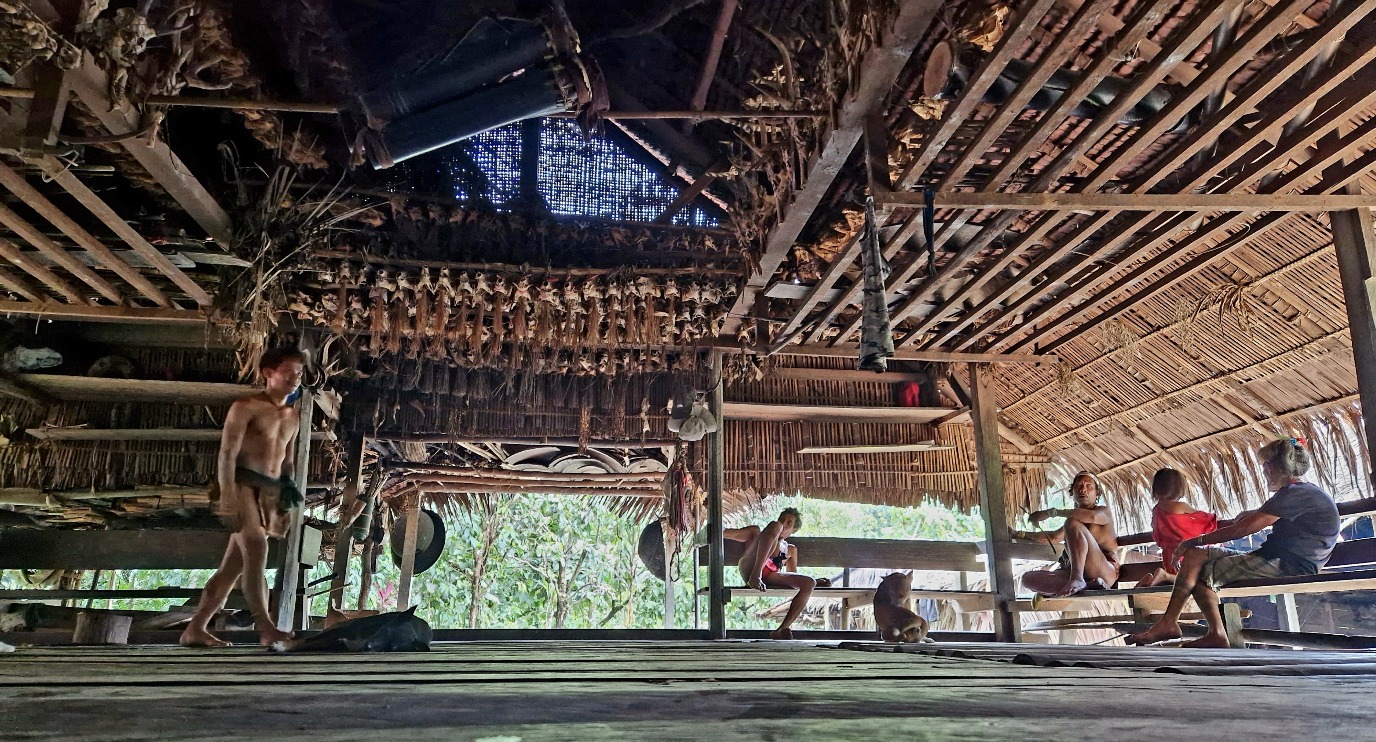
What do you think makes a tourism practice sustainable?
Local Mentawaians are proud of their roots and the traditional Mentawaian way of life. They love to show guests how they live and are interested in learning where their guests come from. They are the happiest people I know and love to laugh, especially when a guest loses their balance and ends up in the mud! Sadly, living traditionally has become quite costly, and they need finances for their rituals and traditions. Through our tours, they can showcase their way of life to the world while earning extra money. They live in a way that does not harm the environment. We, too, try to keep our carbon footprint as low as possible and teach them to do the same. For example, we buy local produce, fruits, vegetables, and free-roaming chickens. We bring as little plastic or waste as possible, and any waste we produce, we ensure to take back with us, away from the jungle, teaching the locals to do the same.
That is why it is best if agents and tourists consult me first for advice. For instance, vegans may not want to see animals being killed. However, for the locals, this is a significant part of their culture. Eating together, sharing meat, and dividing it evenly among families and guests is a sign of respect, especially to honor the guests. They have ceremonies where they slaughter a pig, but they do not do it often, and they use every part of the animal. They apologize to the animal's soul and explain that it was given a good life, but they need its meat to feed the family. They do the same with every tree, plant, fish, fruit, and chicken. For visitors who are not comfortable experiencing this, we ask them to consider visiting at a different time, or we take them for a walk in the jungle until the event is over.
The aspect of monitoring the tourist's journey is closely tied to the concept of slow tourism, which emphasizes taking the time to truly immerse oneself in the destination. Instead of rushing through, I encourage guests to extend their stay beyond a mere two days. Spending 3 to 5 days allows for a richer experience, enabling visitors to meaningfully connect with the local community, gain a deeper understanding of the surroundings, and develop a genuine appreciation for the destination. It's about more than just checking off a box on a bucket list!
Overall, I believe that offering carefully planned small-scale tourism experiences, where visitors are educated about local customs to prevent any conflicts with the community's way of life, can bring positive outcomes for the Mentawaians, ultimately making this practice sustainable.
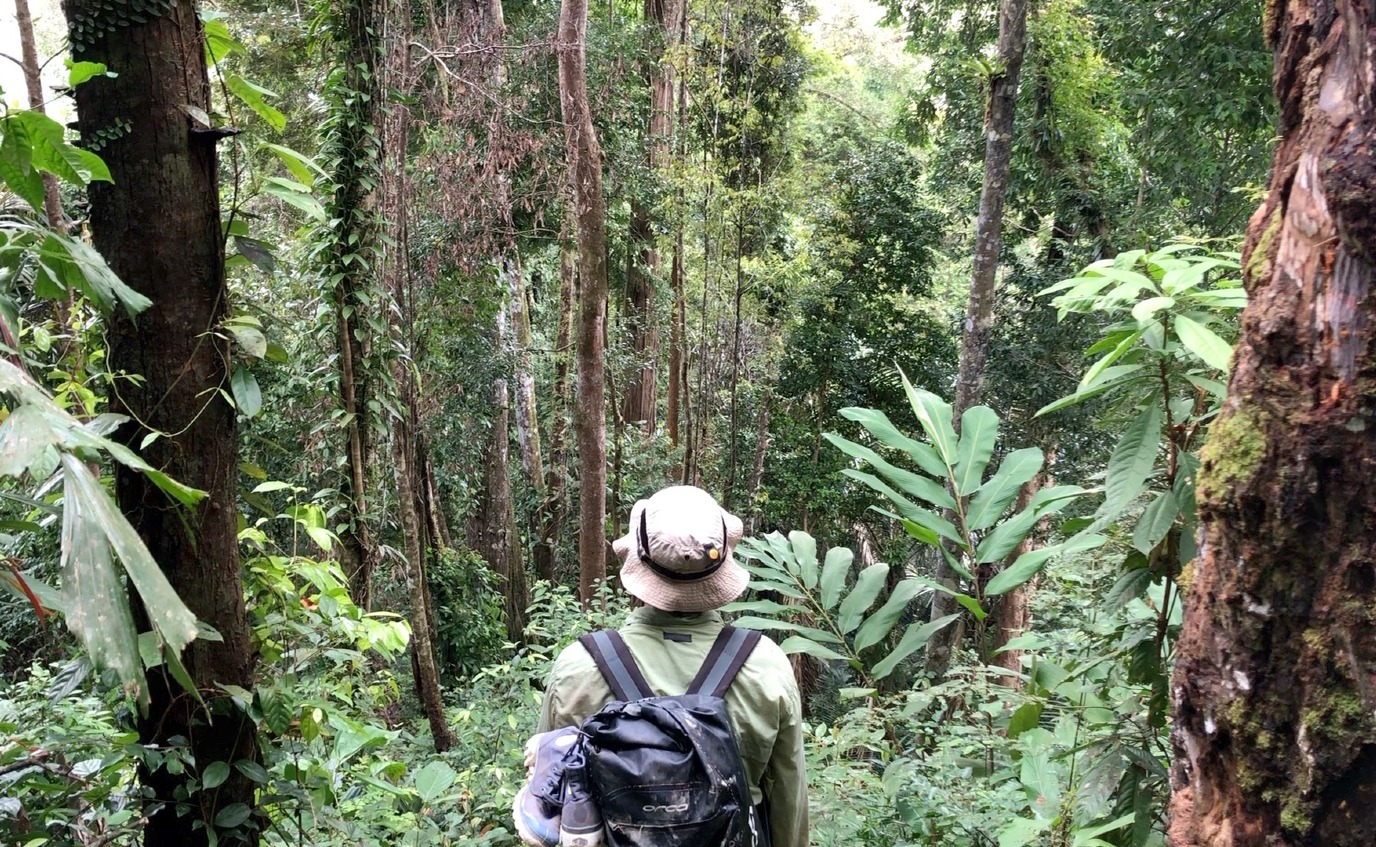
❝Overall, I believe that offering carefully planned small-scale tourism experiences, where visitors are educated about local customs to prevent any conflicts with the community's way of life, can bring positive outcomes for the Mentawaians, which ultimately makes this practice sustainable.❞
What's next for you?
Currently, I am exploring opportunities in the field of sustainable tourism, with a particular interest in government or provincial roles focused on sustainability projects. My goal is to continue promoting responsible tourism practices and advocating for the preservation of cultural and natural heritage.
About the author

Ciao! My name is Erika and I am the Content & Data Management Specialist of Campus Fryslân. I was born and raised in Italy and have recently graduated from the MSc in Climate Adaptation Governance. I have been in charge of the blog and all its content since October 2023. My aim is to make this virtual space serve as a logbook for the Campus Fryslân community and as a welcoming introduction for all newcomers. Here, you will find stories from the people of Campus Fryslân to get a taste of what studying here is like and the exciting opportunities it comes with!

